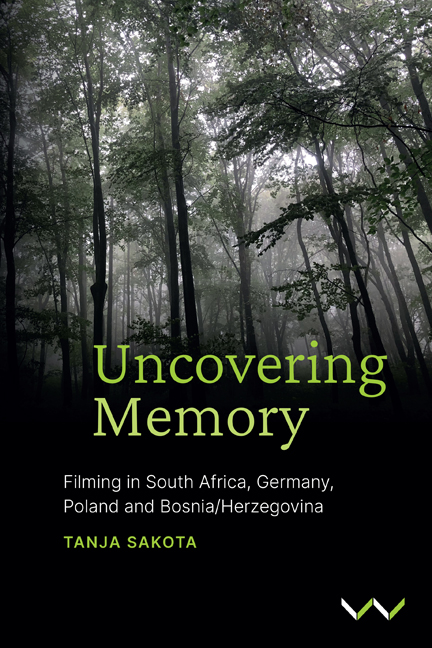Book contents
- Frontmatter
- Dedication
- Contents
- List of Images
- Foreword
- Acknowledgements
- Map of Africa and Europe
- Practice-Based Research, Teaching and Learning
- Part I Working With Students: Cape Town, Johannesburg, Berlin
- Part II Working With Peers: Constitution Hill, Johannesburg
- Part III Working With Myself: Poland, Germany, Bosnia/Herzegovina, South Africa
- Moving Forward
- Film Credits
- Glossary of Terms
- Notes
- Bibliography
- Index
Chapter 20 - Looking at the reflections: a discussion post-practice
Published online by Cambridge University Press: 24 November 2023
- Frontmatter
- Dedication
- Contents
- List of Images
- Foreword
- Acknowledgements
- Map of Africa and Europe
- Practice-Based Research, Teaching and Learning
- Part I Working With Students: Cape Town, Johannesburg, Berlin
- Part II Working With Peers: Constitution Hill, Johannesburg
- Part III Working With Myself: Poland, Germany, Bosnia/Herzegovina, South Africa
- Moving Forward
- Film Credits
- Glossary of Terms
- Notes
- Bibliography
- Index
Summary
THE CONCEPT
In 2020 my life was confronted with a personal tragedy, a traumatic event that changed my perception and my understanding of everything. Nothing made sense and I didn't know how to pick up the pieces of what remained. Being someone who finds relevance in theory, I first focused on understanding trauma from a theoretical perspective. Once I gained this knowledge, I was able to start processing the emotions of what I was experiencing. Being a visual person as well I used the image of a mirror to create a symbolic representation or picture of what I was going through.
For me the analogy of a mirror is important because when we look into a mirror, we usually look at a reflection of ourselves. The image that is reflected, however, is not only dependent on what we look like, it is also reliant on what the mirror looks like (the size, the frame, the shape, the condition of the glass). For me, when you look into a mirror, the reflection is also a symbolic representation of your life. Your experiences will shape the image that is in the mirror and how you look at that image.
The title for the film Shattered Reflection refers to the time after you experience a traumatic or tormenting event. At that moment you feel as though your life is shattered. I explore this concept visually and artistically in my film. The pieces of your life are on the floor, broken, splintered, smashed to smithereens. This brings me back to the mirror; if the mirror is a symbolic representation of your life then after a traumatic event the mirror of your life lies shattered on the floor. The reflection now looking back at you is through the pieces, a crushed, distorted and wilted image of what was once familiar. Your life is no longer recognisable because of what you have experienced but somehow the reflection faintly resembles how you once understood the world even though the image is shattered. There are hints and glimpses of your former life but they are so distorted that they are hardly identifiable. This is how I imagine what it must feel like after experiencing and surviving the horrors of war.
- Type
- Chapter
- Information
- Uncovering MemoryFilming in South Africa, Germany, Poland and Bosnia/Herzegovina, pp. 273 - 288Publisher: Wits University PressPrint publication year: 2023



